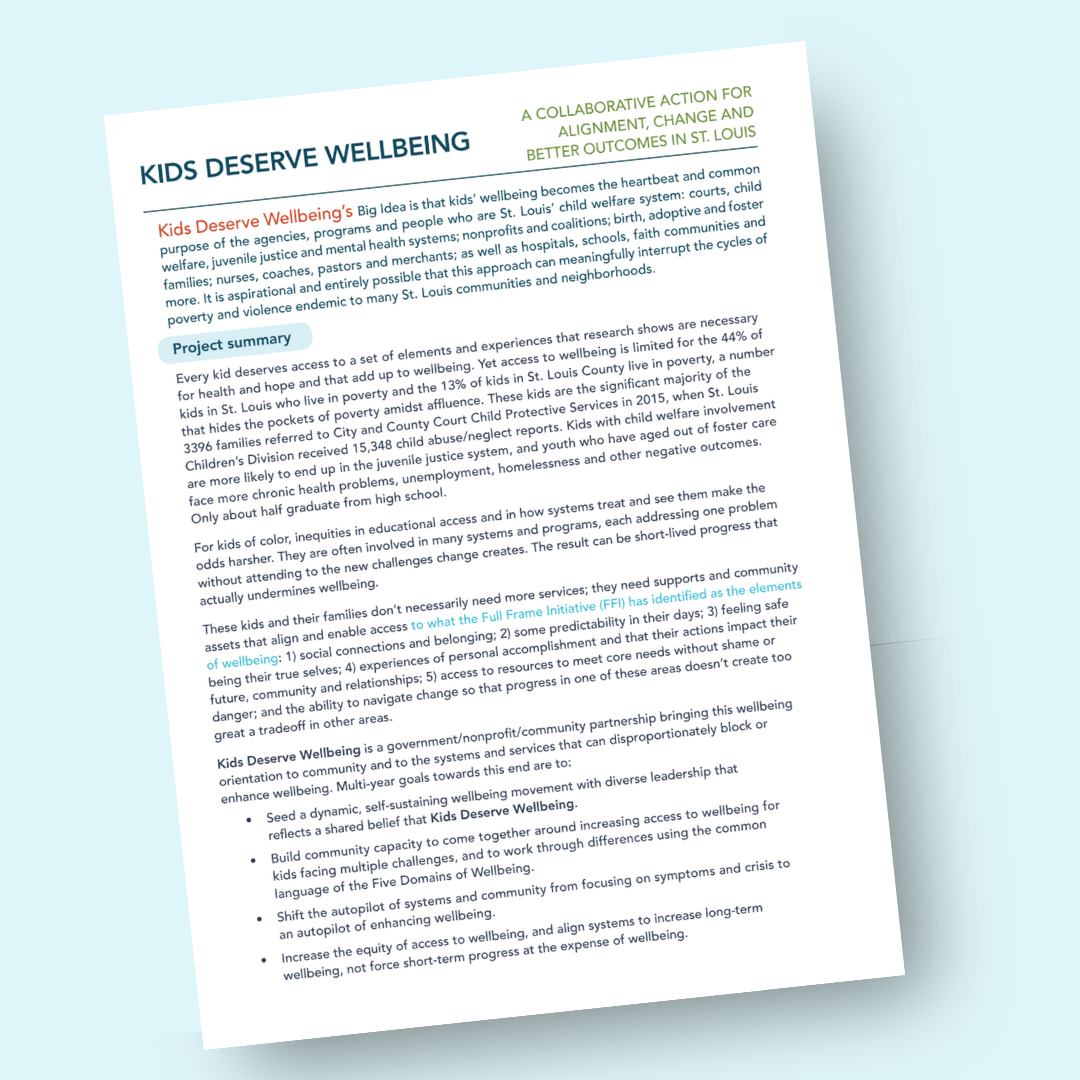
FFI partnered with St. Louis to launch the 'Kids Deserve Wellbeing' framework, uniting child welfare systems, communities, and families around a shared vision for children's wellbeing.
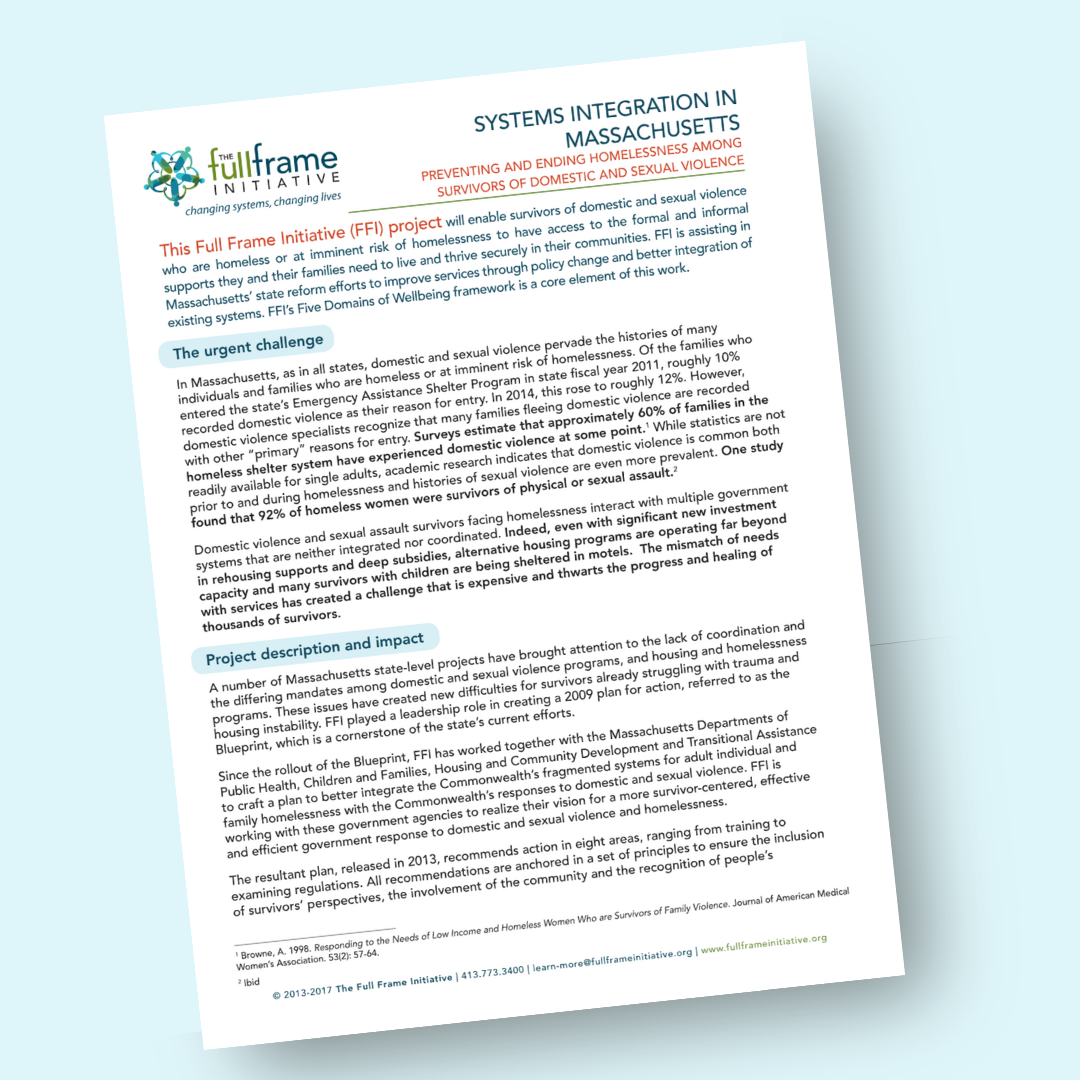
FFI assisted Massachusetts' state reform efforts to improve services to survivors of domestic and sexual violence who also faced homelessness or imminent risk of homelessness and their access to wellbeing.
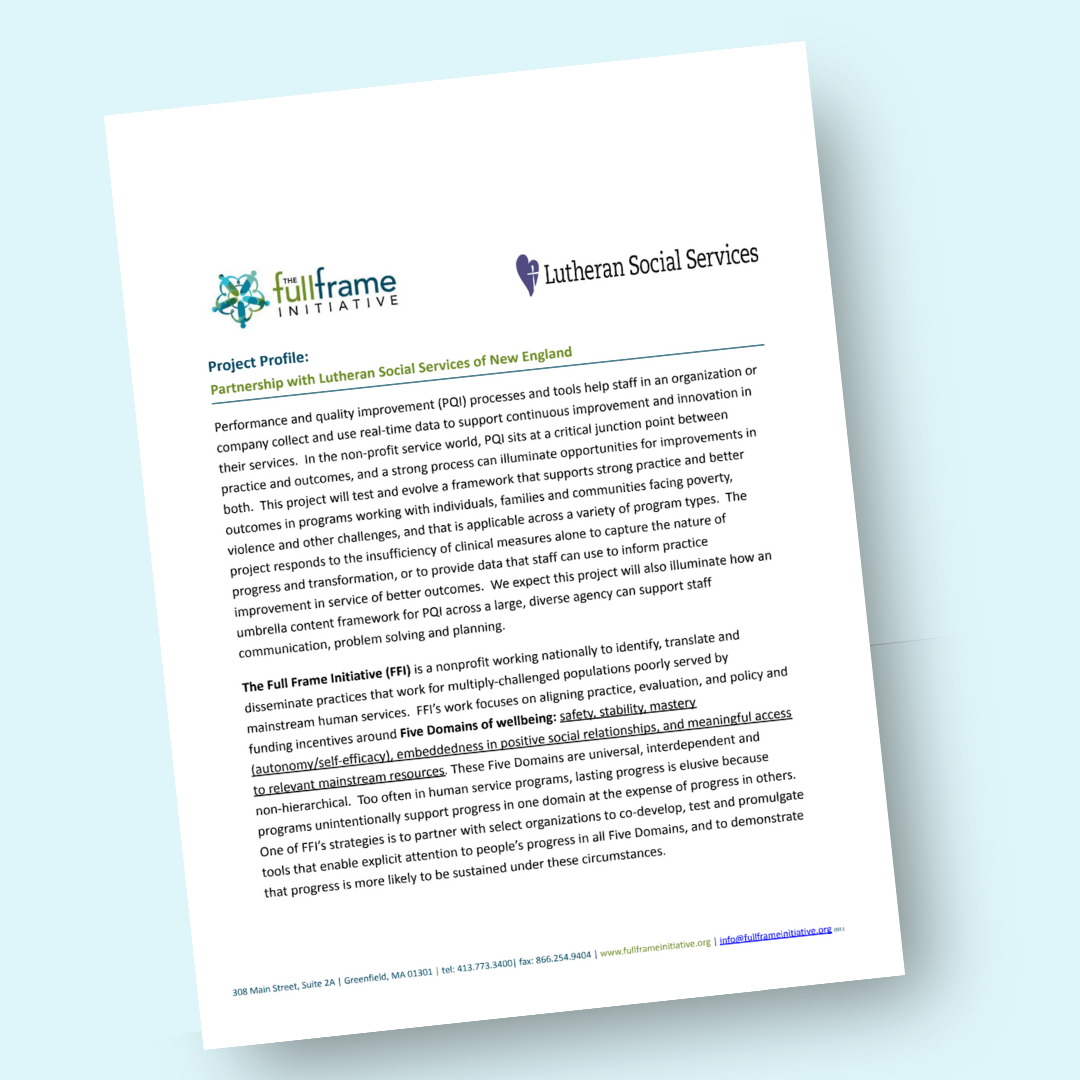
FFI partnered with Lutheran Social Services of New England to create tools that support integration of wellbeing design at the individual level.
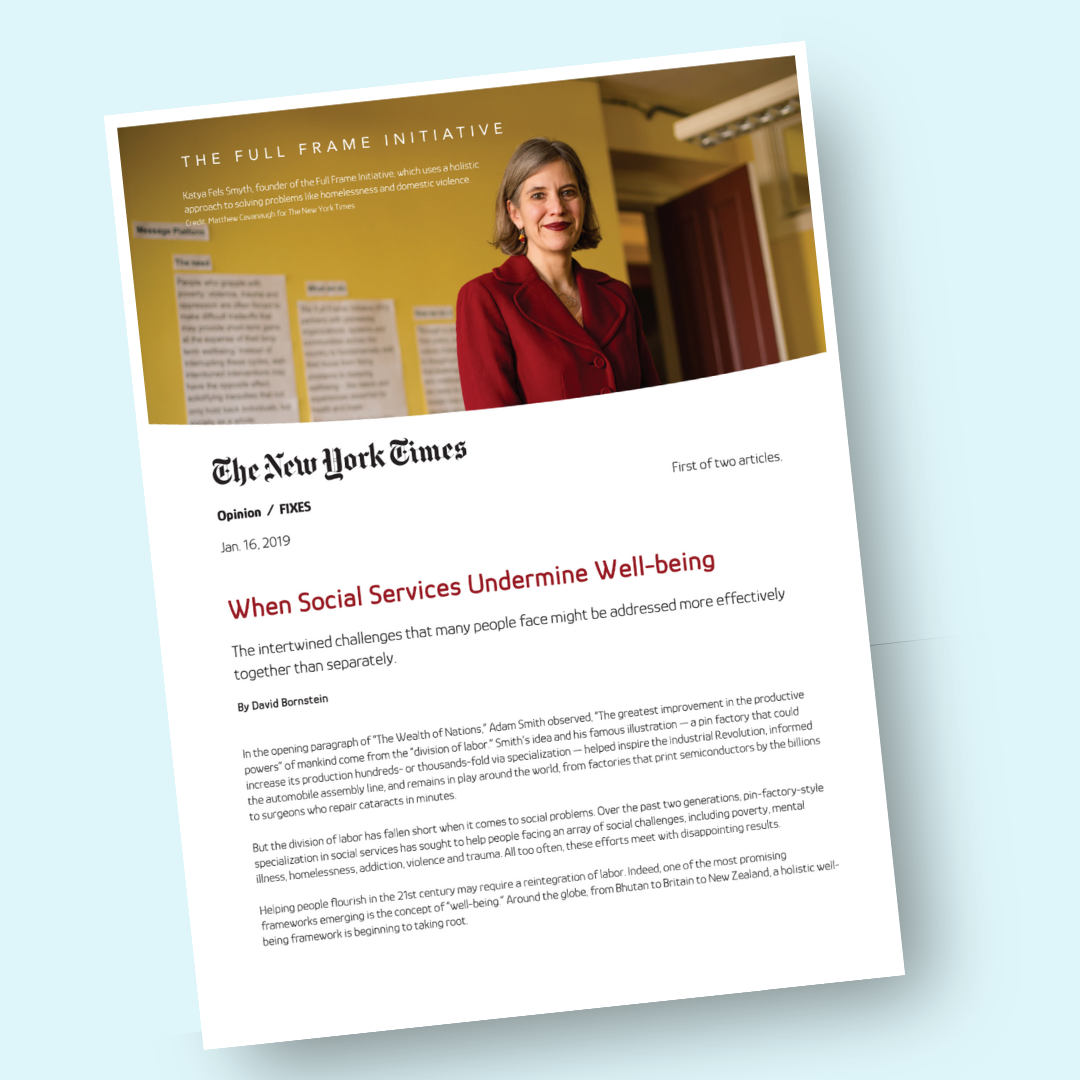
Two articles in the New York Times highlight FFI's wellbeing framework as a holistic approach to solving problems addressed through government systems like homelessness and domestic violence.
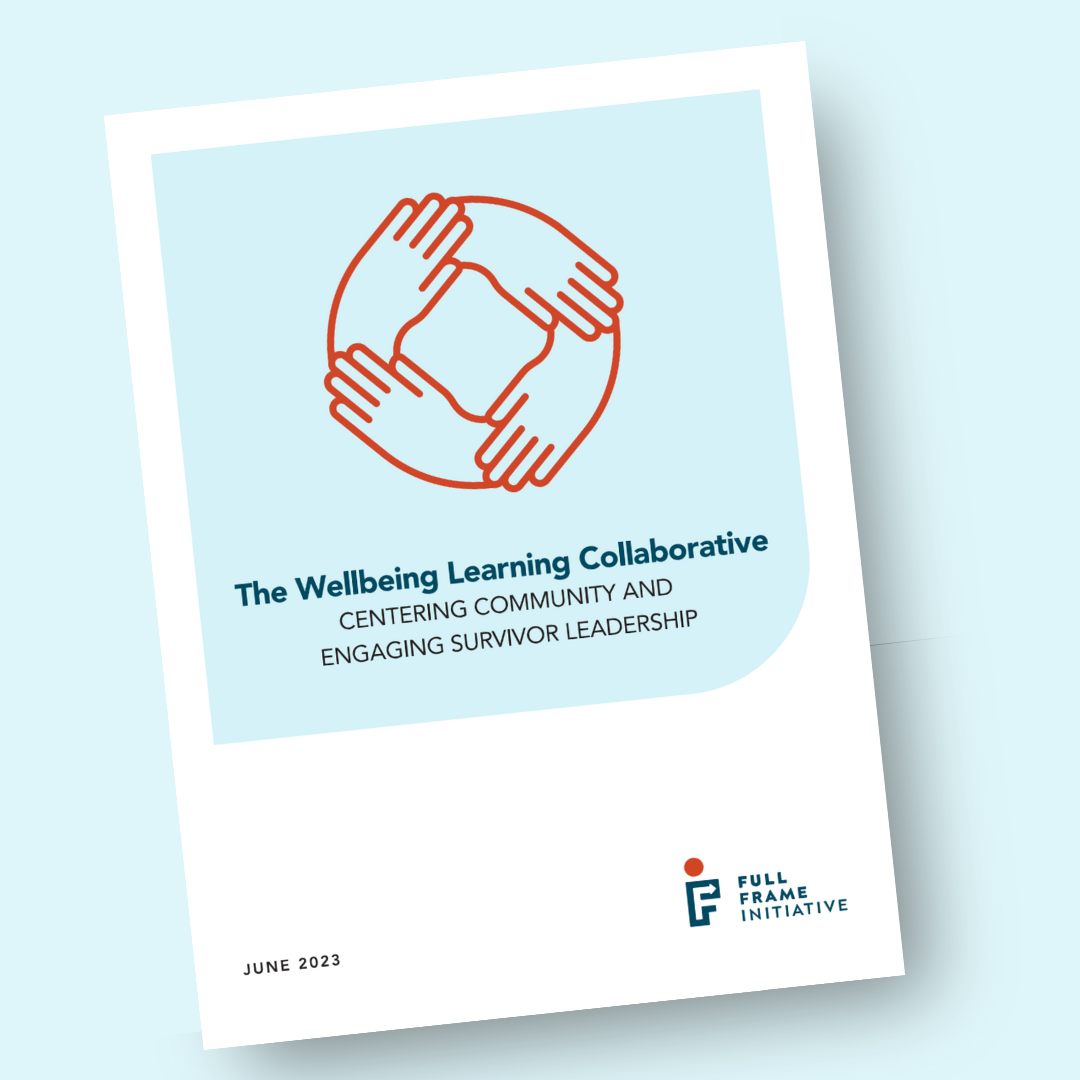
A group of organizations working in domestic violence in Massachusetts contributed to this report on centering community and engagement survivor leadership as a way to support access to wellbeing.

Allie’s story shows how system-designed solutions that overlook a person’s full life context can unintentionally cause harm.

Even in short interactions, we can pay attention to tradeoffs and wellbeing.
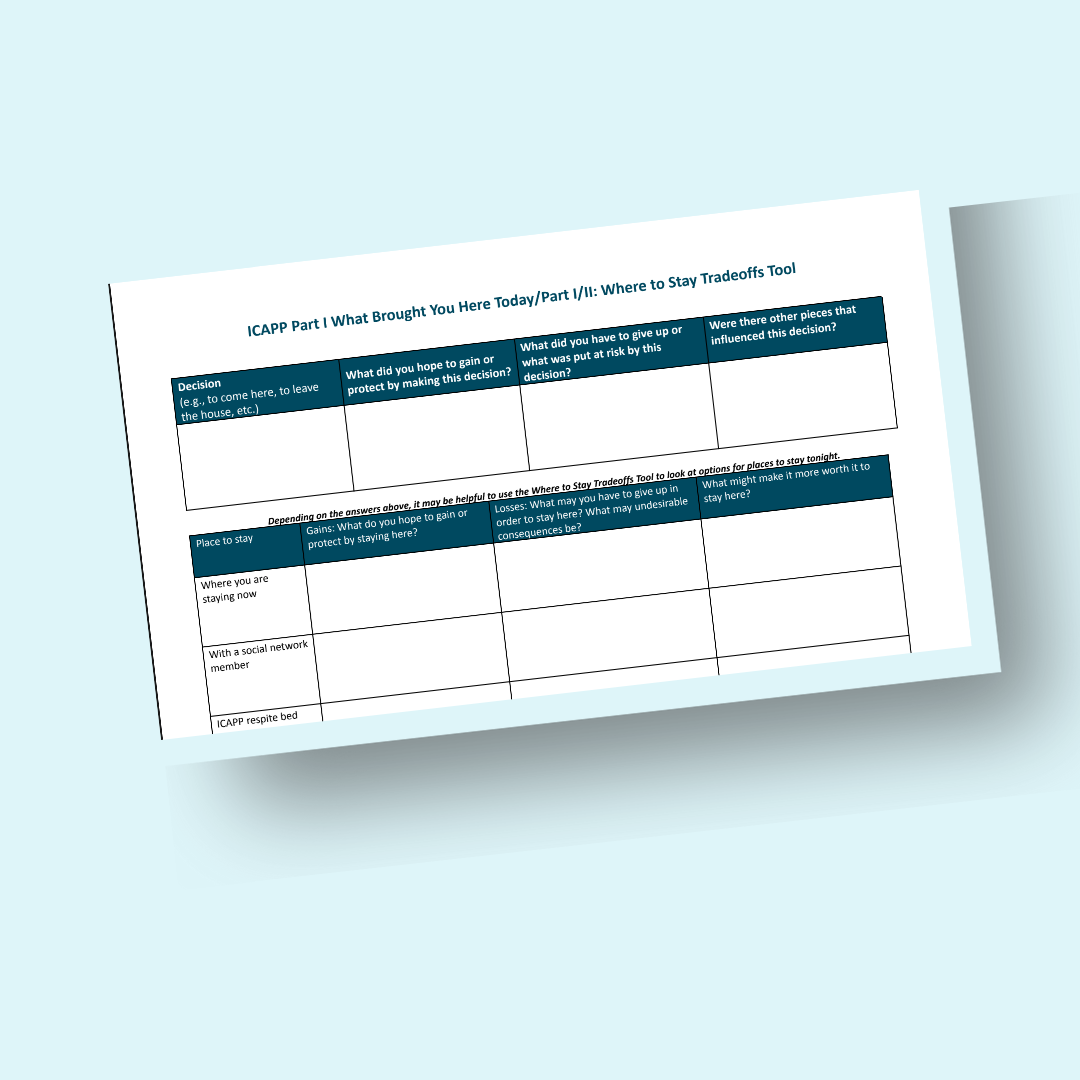
This tool can help evaluate the tradeoffs for an individual who doesn't have a place to stay for the night.
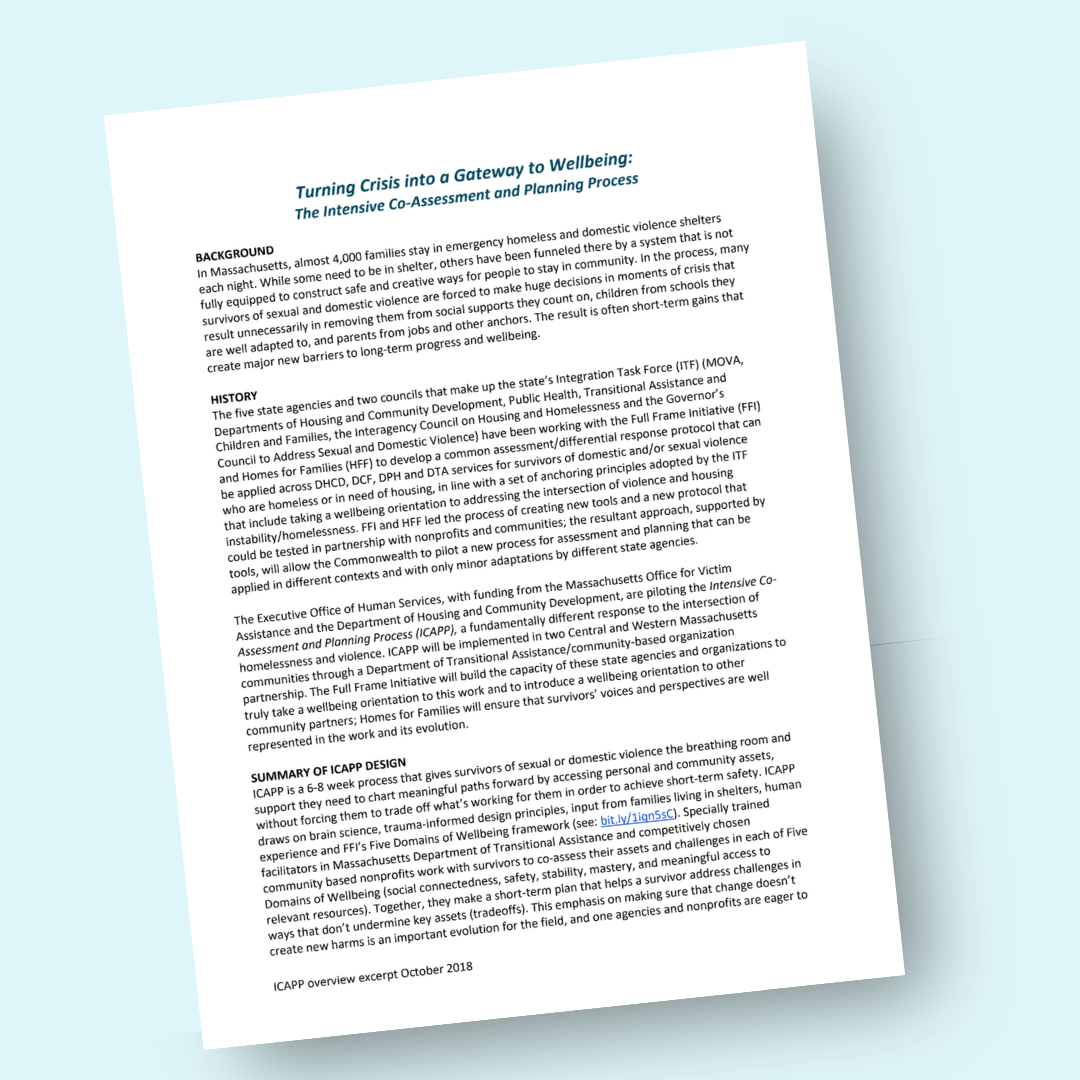
This example highlights how the wellbeing framework can be used to support survivors of domestic violence and sexual assault shift from short-term safety planning to longer-term wellbeing planning.

This document shares the findings of a pilot study to better understand men who use violence in intimate partner relationships.
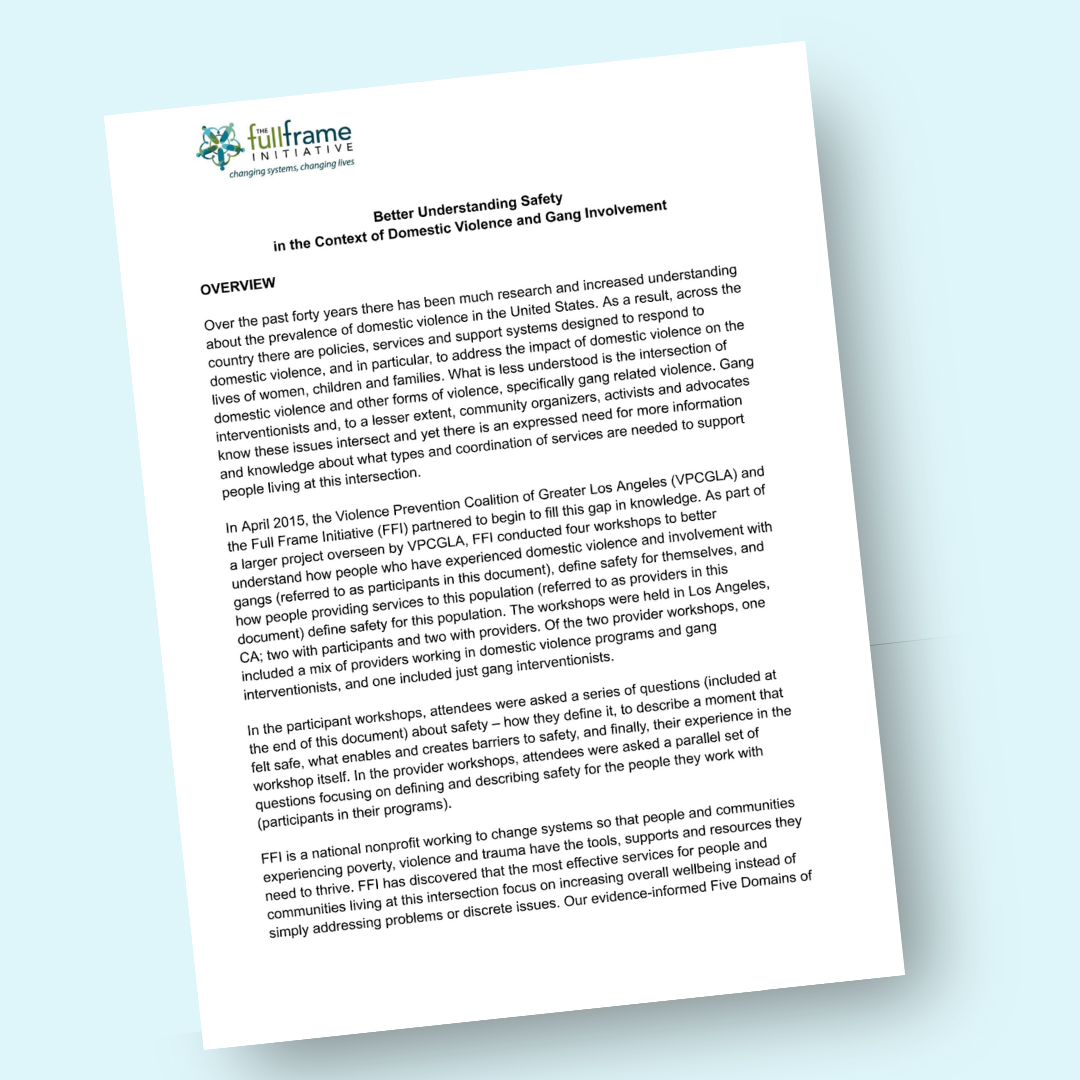
This document summarizes the results of workshops that helped understand the intersection of domestic violence and gang-related violence.

Example of how the Five Domains of Wellbeing can be examined during assessment and incorporated into treatment or action plan.